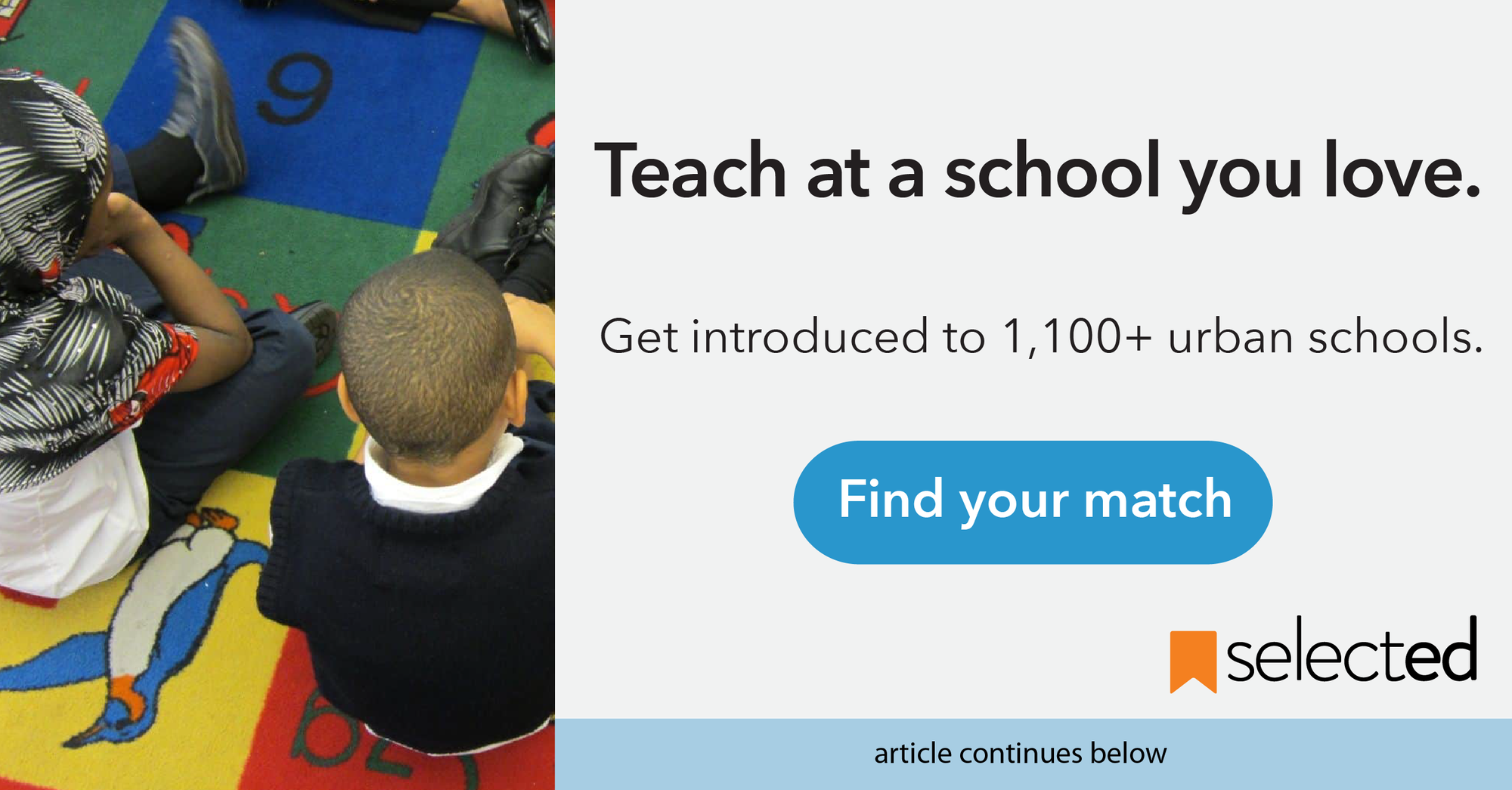Teacher Interview Hack: It’s Not What You Say, It’s How You Say It
When we spoke to school administration about what they were looking for in teacher candidates, they agreed that a teacher could answer every question exactly “right,” but if they don’t have the right-fit character, they aren’t going to receive an offer.

Regardless of what type of teaching position you are applying for, your goal during the in-person interview should always be the same: present your absolute best professional self. When are you considered to be at your best professional self? When you are calm, confident, and prepared.
Prepare to Present Your Best Professional Self
Easier said than done? Not necessarily. If you take the time to thoughtfully prepare for the interview, your likelihood of success will be far greater. The three most important things you can do to prepare are 1) research the school 2) draft responses to common interview questions, and, if applicable, 3) plan your explanation for any resume gaps, short durations at a school, or recent career changes. Take our word for it; you will be grateful you took these steps to prepare when you are effortlessly breezing through that interview with supreme confidence, knowing in your heart of hearts that you are the best candidate for the job!
Research the School
While you are researching the school, the question circulating through your mind should be “How would I be an asset to this school?” If you use this question as a guide, it will help you angle your responses during the interview. Then, instead of the hiring team pondering this very question, you are providing them with the answer. For example, if the school has a strong arts program and that’s something you feel passionate about, make sure you mention the art-integrated lessons you’ve taught. Or, if the school uses “Teach Like a Champion” techniques for classroom management, and some of these strategies saved your life during your last year of teaching, make this clear when you answer questions related to classroom management. It will help the hiring team visualize you seamlessly integrating into the school.
Address Gaps, Career Changes, Short Durations
If any of these apply to you, rest assured: if the resume got you in the door, they are still interested in you. Plan how you are going to explain any of these issues if asked and make sure the response has a positive lean and seems intentional. “I never would have imagined that I would leave a teaching position mid-year. It was an extremely difficult decision for me. However, the school truly was not a fit for me and I didn’t feel proud of the work I was doing. I wrote goodbye notes to each of my students and I still keep in touch with a few of them. I still feel guilty about it but at the end of the day I feel like it was the right decision.” This teacher makes it clear that leaving was the right decision for their students and themselves (positive, intentional) instead of going into detail about the hostile environment that led to them leaving (negative).
Know Your Resume
Finally, know your own resume inside and out. This part is easy. You not only wrote it, you lived it.
What You Say vs. How You Say It
When we spoke to hiring managers and school administration about what they look for in candidates, we were surprised to find that their responses didn’t overly emphasize content knowledge, classroom management, or impressive data. Although these are highly prized qualities, and you should certainly prepare responses to questions relating to these topics, members of the hiring team agree that certain personal qualities are equally as important. In other words, a teacher could answer every question exactly “right,” but if they don’t have the right-fit character, they aren’t going to receive an offer.
This is great news for you, because you don’t need to feel pressure to come across as a flawless, high-performing teacher who never makes mistakes. What’s more important is that you have a positive attitude, are thoughtful and intentional in your daily practice, embrace challenging experiences as an opportunity to learn, and show your ability to reflect and grow.
Here is an example of two ways the same teacher could answer a question.
Teacher #1: “80% of my students showed significant growth. The 20% that didn’t, I feel, was because they weren’t receiving adequate support from their providers.”
Teacher #2: “80% of my students showed significant growth. I noticed that most of the 20% that didn’t show growth were receiving support from providers, so I worked with the students’ providers to develop more individualized plans. Going forward, I want to prioritize this at the start of the year so that students don’t fall behind.”
Which teacher would you want to hire? The second teacher takes ownership, has a positive attitude, and shows that they have learned from the experience. It’s highly likely that they will receive a job offer before the first teacher.
Many teachers hesitate to share what they feel are weaknesses or mistakes, as in the example above of student growth deficits. But quite often, exposing weaknesses or mistakes is actually the interviewer’s intention. This is not a “gotcha” moment. They are not trying to determine whether you have flaws (of course you do, everyone does!)—they are trying to see if you take ownership and remain positive and solutions-oriented when things don’t go your way.
The teacher job search has gone virtual! Download our latest guide to acing the virtual job search for free here.
About Selected
Selected helps teachers find jobs at schools they love. We offer a free school matching and career support platform for teachers that connects them with 1,200+ PK-12 public and independent schools in urban metro areas in the Northeast and West Coast, including New York City, NJ, CT, Philadelphia, Washington DC, Boston, and Los Angeles. Create a FREE teacher profile in 5 minutes and connect with hiring schools immediately!





